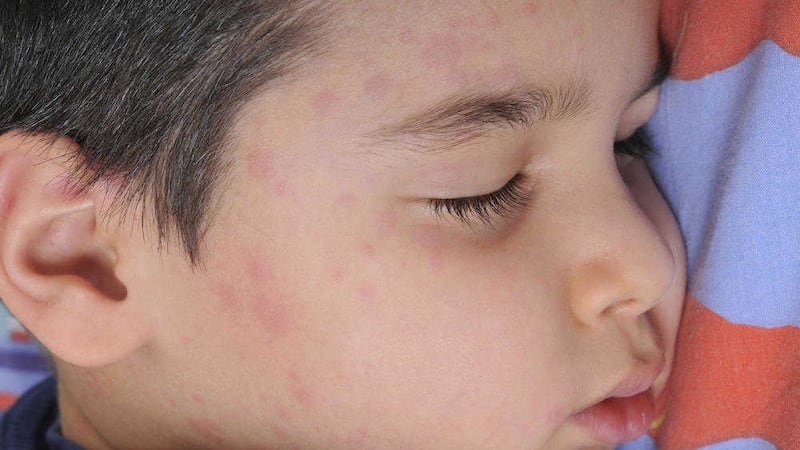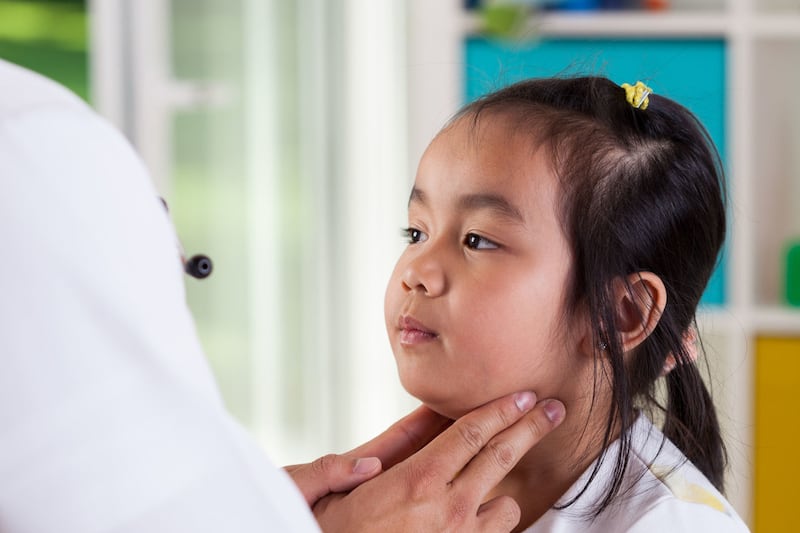A MUMPS outbreak has forced the cancellation of a major college GAA fixture – and a “no kissing” warning at a mixed-sex Co Derry school.
It has emerged that 13 players from St Patrick’s, Maghera have acquired the highly contagious illnesss, while a number of teenage girls at the college have also been affected.
Principal Ciara Warnock has issued guidelines on the school website to prevent the spread of the disease, which were provided by the Public Health Agency.
Improved hygiene, not sharing water bottles and “avoiding kissing between boys and girls” are among the measures mentioned.
The outbreak has also led to the cancellation of a MacRory Cup quarter-final tie on Sunday, which normally attracts large crowds. St Patrick’s were due to play Abbey CBS from Newry.
The Maghera college, which has more than 1,300 pupils, has informed parents of the outbreak and advised them to vaccinate their children if they have not received the MMR jab (Measles, Mumps and Rubella) or get a booster vaccination.
It is understood that less than 20 pupils currently have the mumps.
Dr Richard Smithson, an expert in infectious diseases from the Public Health Agency (PHA), said mumps tends to appear “in cycles” but said the figures remain very low compared to 20 years ago when thousands of children and adults became ill.
“What we have also noticed is that although the MMR vaccination seems to give lifelong protection against measles and Rubella, it only seems to protect for about 15 years or so against mumps – so it doesn’t surprise me we are seeing this in young men,” he said.
“The cases are also much less serious now so it does give a degree of protection. Prior to the introduction of the vaccine, mumps was one of the main causes of viral meningitis. But we rarely see cases of this now.”
Latest figures show there were 192 confirmed mumps cases last year, with 64 in 2014 and 418 cases in 2013.
A similar spike was recorded in 2008, when most of those affected were among a group of people who as children didn't receive two doses of the MMR vaccine.
Another factor was that in 1994, to prevent a measles epidemic, children between 5 to16 were immunized against measles and rubella but there was insufficient mumps vaccine to go round.
In 2004 there were a total of over 4,000 cases.
The advice from the Public Health Agency is that if people are concerned they can contact their doctor to check how many MMR vaccinations they have received.




